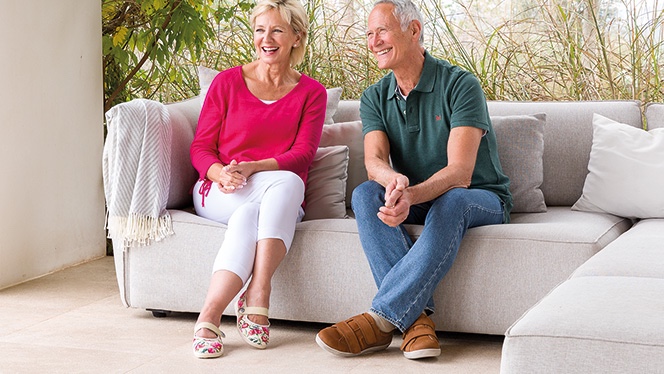Are you or a loved one eligible for VAT Relief on footwear?

If you or a loved one have a long-term illness or disability, you may well know that certain helpful products and services can be purchased VAT-free. Items such as adjustable beds, stair lifts and wheelchairs all qualify, as does building work such as installing ramps or widening doors. But did you know that VAT Relief is also available on specialist footwear?
What is VAT Relief?
VAT is a tax that you pay as a consumer when you buy goods and services. In the UK the standard rate for VAT is 20% (May 2019). Individuals who are chronically sick or disabled can claim VAT Relief when they buy equipment that has been designed solely for disabled people and is for their own ‘personal and domestic use’.
This means that they pay the retail price without VAT included. Put simply, VAT Relief or exemption allows chronically sick or disabled people to buy eligible items at 0% VAT, thus saving them money. One of the products included in this list of eligible products is specialist footwear.
What constitutes specialist footwear?
Specialist footwear is defined as footwear that has been designed to be worn by people who are disabled or who have a long term-illness. This could be extra-roomy shoes, sandals, boots and slippers that have been specifically designed to fit people with swelling in their feet and ankles. Such swelling is often caused as a result of a disability or a long-term medical condition such as diabetes.
Do customers get a refund of VAT from HMRC?
No. It’s actually far simpler than that. VAT Relief works by the supplier not charging VAT. In order to waive VAT on your purchase, the government requires a simple declaration to be made as to the nature of your disability at the time of ordering.
Do you need a doctor’s certificate?
No proof of the disability needs to be shown to any party at any time. All the company or supplier needs to know is the name and address of the person the item is for and what their chronic sickness or disability is. They don’t require a doctor’s letter or any reference numbers.
It’s worth noting that the supplier doesn’t decide whether an item is or isn’t exempt – that’s up to the government. Also, they don’t make any more or less money if they charge or don’t charge you VAT.
Who is eligible for VAT Relief?
To be considered ‘chronically sick or disabled’, and therefore eligible for VAT Relief, the government says a person has to fit the following criteria:
- Have a physical or mental impairment that has a long-term effect on their ability to carry out everyday activities
- Have a condition that doctors treat as a chronic sickness (like diabetes, for example)
- Have a terminal illness
A person with a temporary injury like a broken leg would not qualify, nor would a frail older person who is otherwise well and non-disabled.
If you are unsure whether someone is eligible for VAT Relief, you would need to ask a doctor or medical adviser as the suppliers themselves aren’t allowed to give medical opinions.
What if a customer can’t make a written declaration?
It may not always be possible for a disabled person to sign a declaration, for example, if the person can’t write due to their disability or illness. In such cases, the signature of a spouse, doctor or another responsible person is acceptable on the declaration. An online declaration can also be made, which requires no signature.
Steps to placing your VAT-free order
First of all, choose a footwear provider that makes shoes to meet the specific needs of the wearer. Then check that the company offers VAT Relief to qualifying customers.
Shoe companies have slightly different methods of offering VAT Relief. Typically, an initial VAT-free purchase must be made by post or online. This is because, according to government guidelines, a company is unable to accept an initial VAT Relief claim over the phone. Some mail order shoe catalogues include a VAT Relief form, which can be posted with an order. Customers ordering online will typically find a VAT Relief section at the checkout which needs to be completed. Once the shoe company has received your completed form, they will register the person who is claiming VAT Relief. Purchases can then be made free of VAT.
Registration for VAT Relief will need to be renewed every three years, or more frequently in some cases.
This article has been contributed by specialist footwear provider, Cosyfeet. To find out more about Cosyfeet’s extra roomy footwear for swollen or bandaged feet, pure wool footwear for diabetes or specialist socks and hosiery, visit www.cosyfeet.com or call 01458 447275 to speak with a friendly, experienced customer adviser.
If you found this article helpful, why not sign up for our newsletter?

